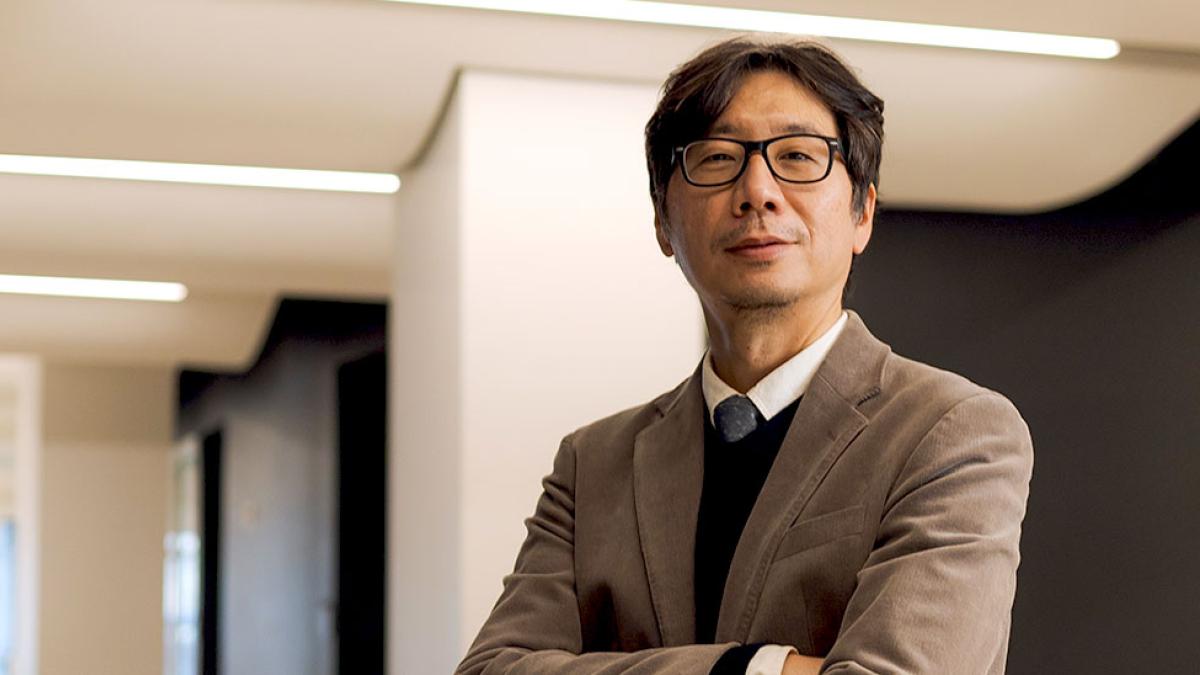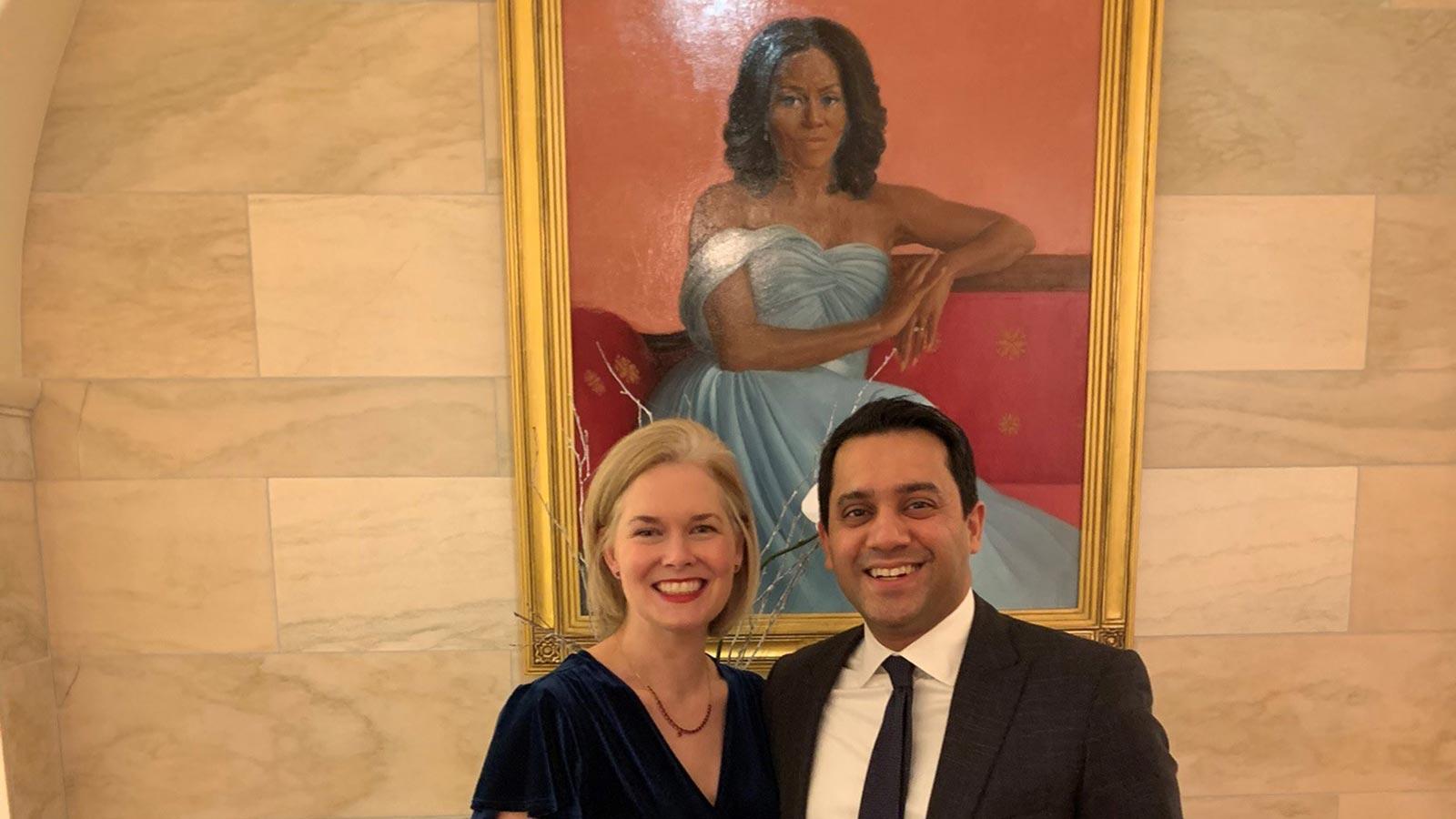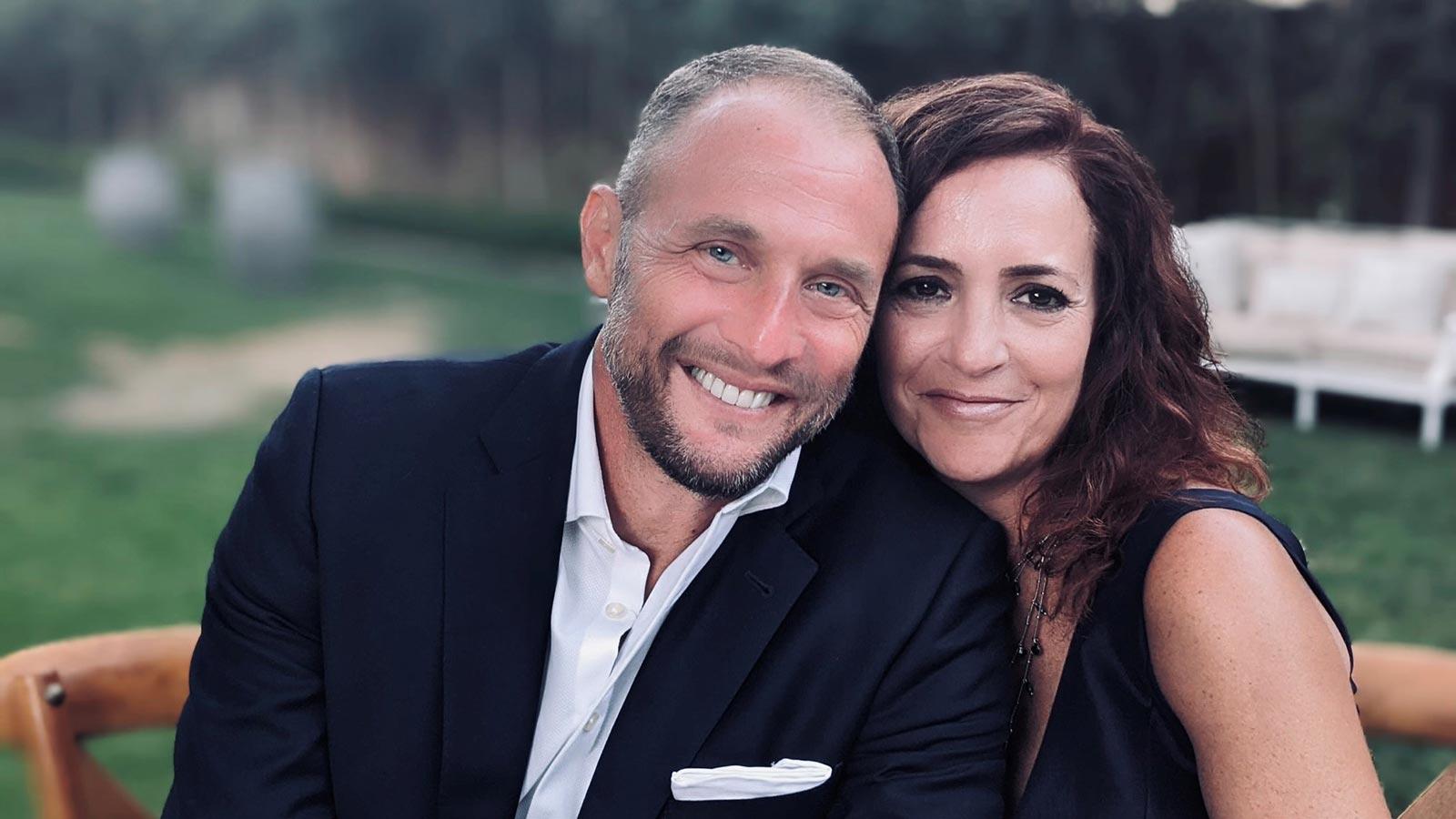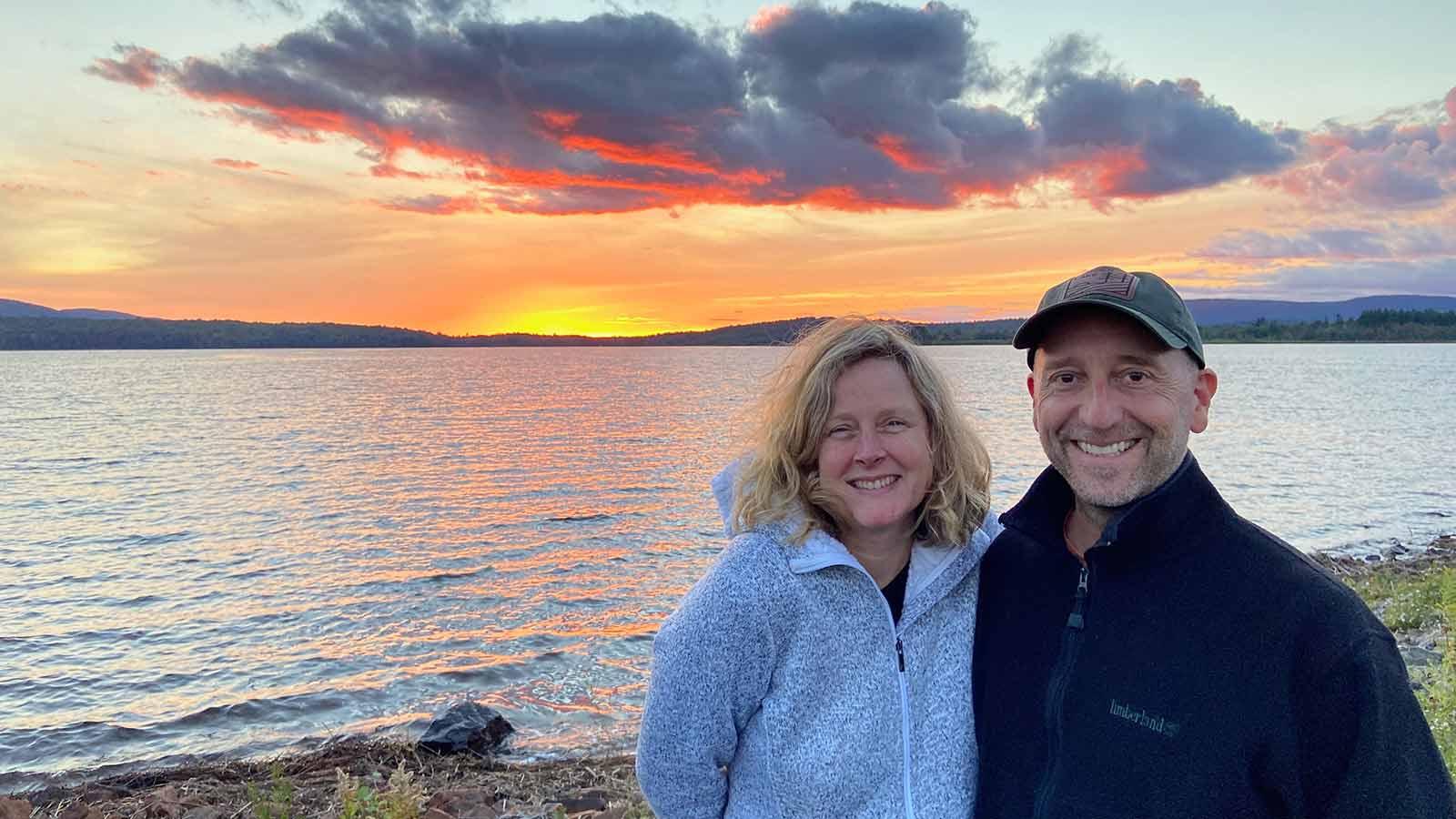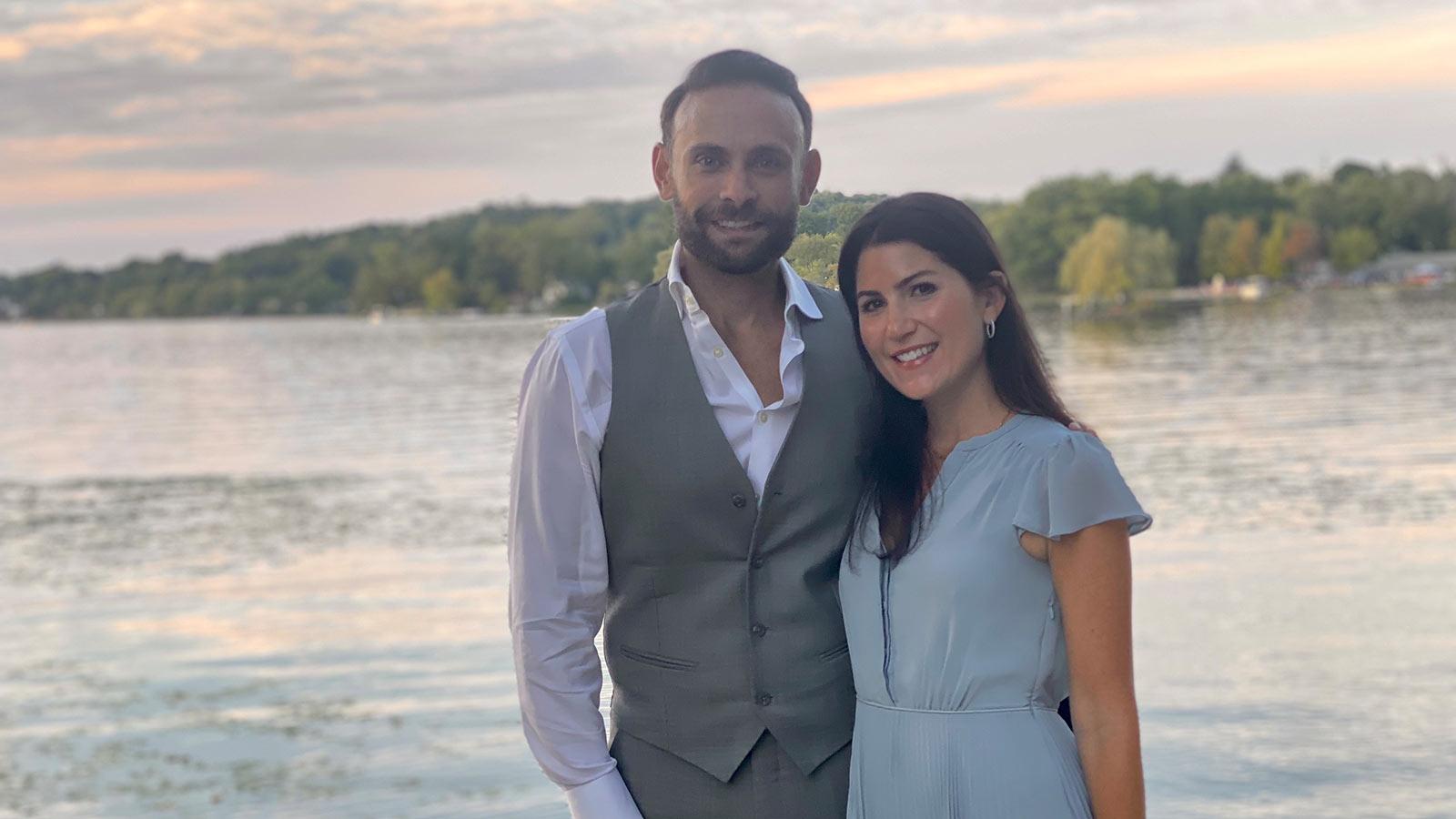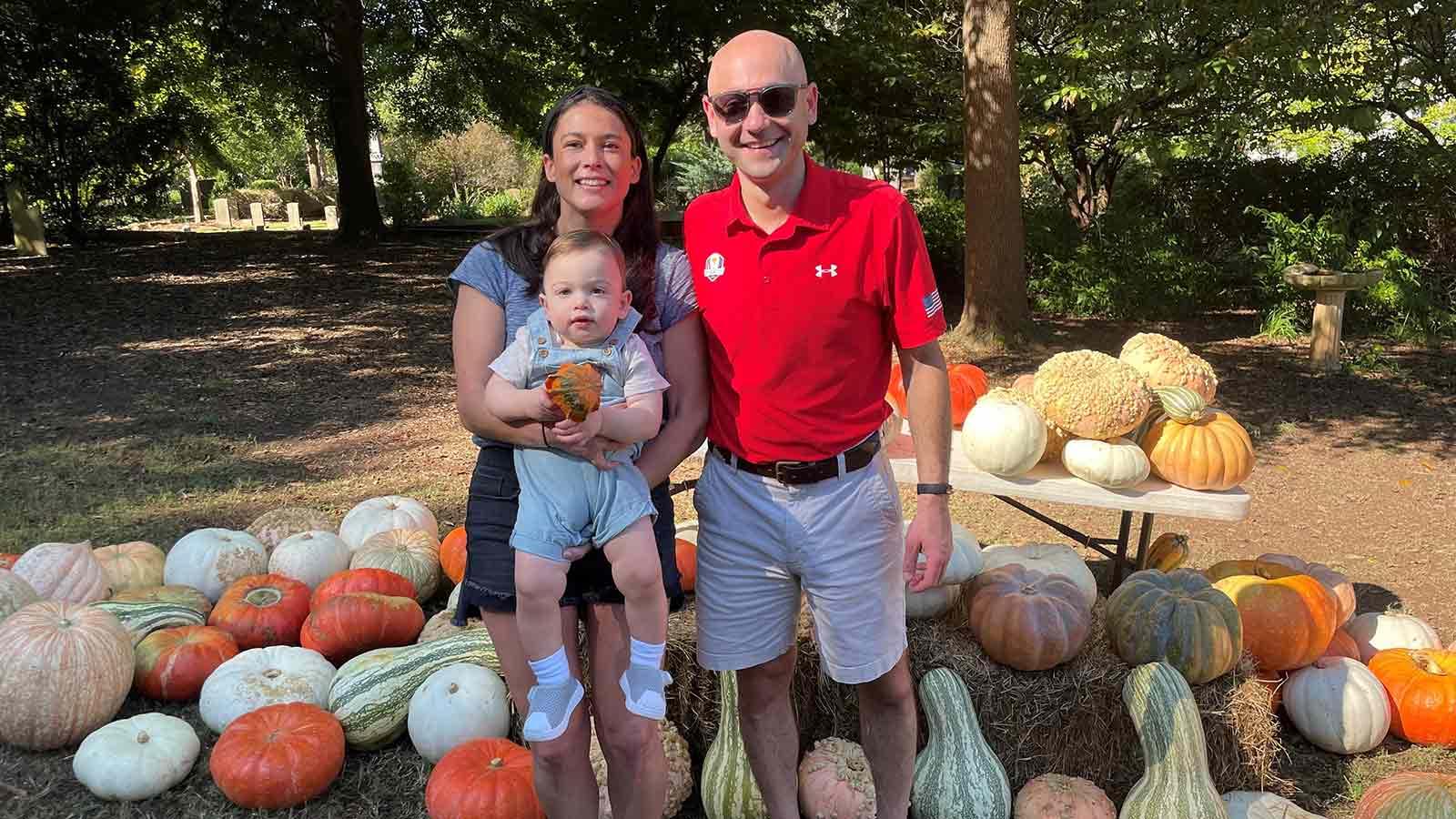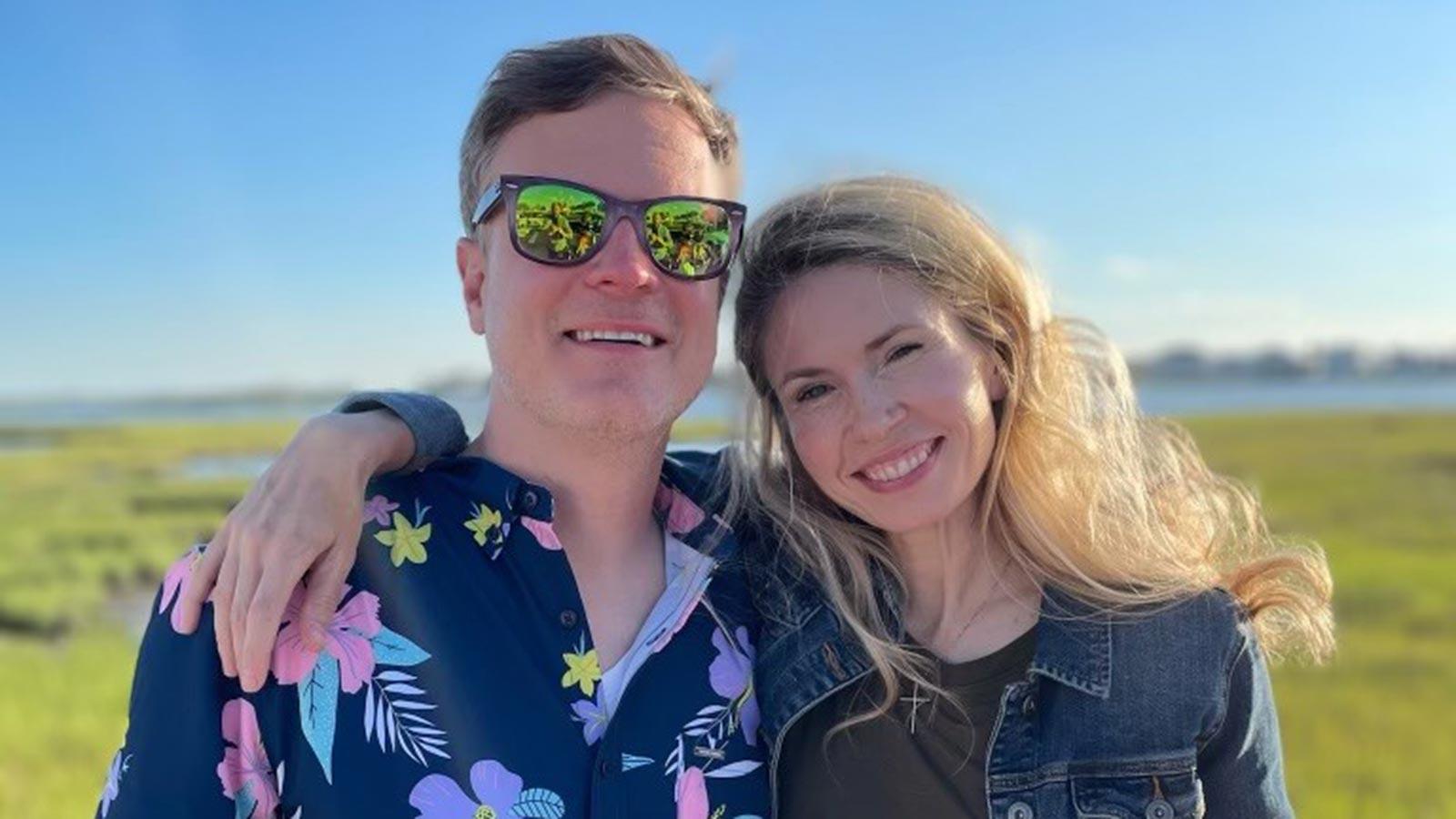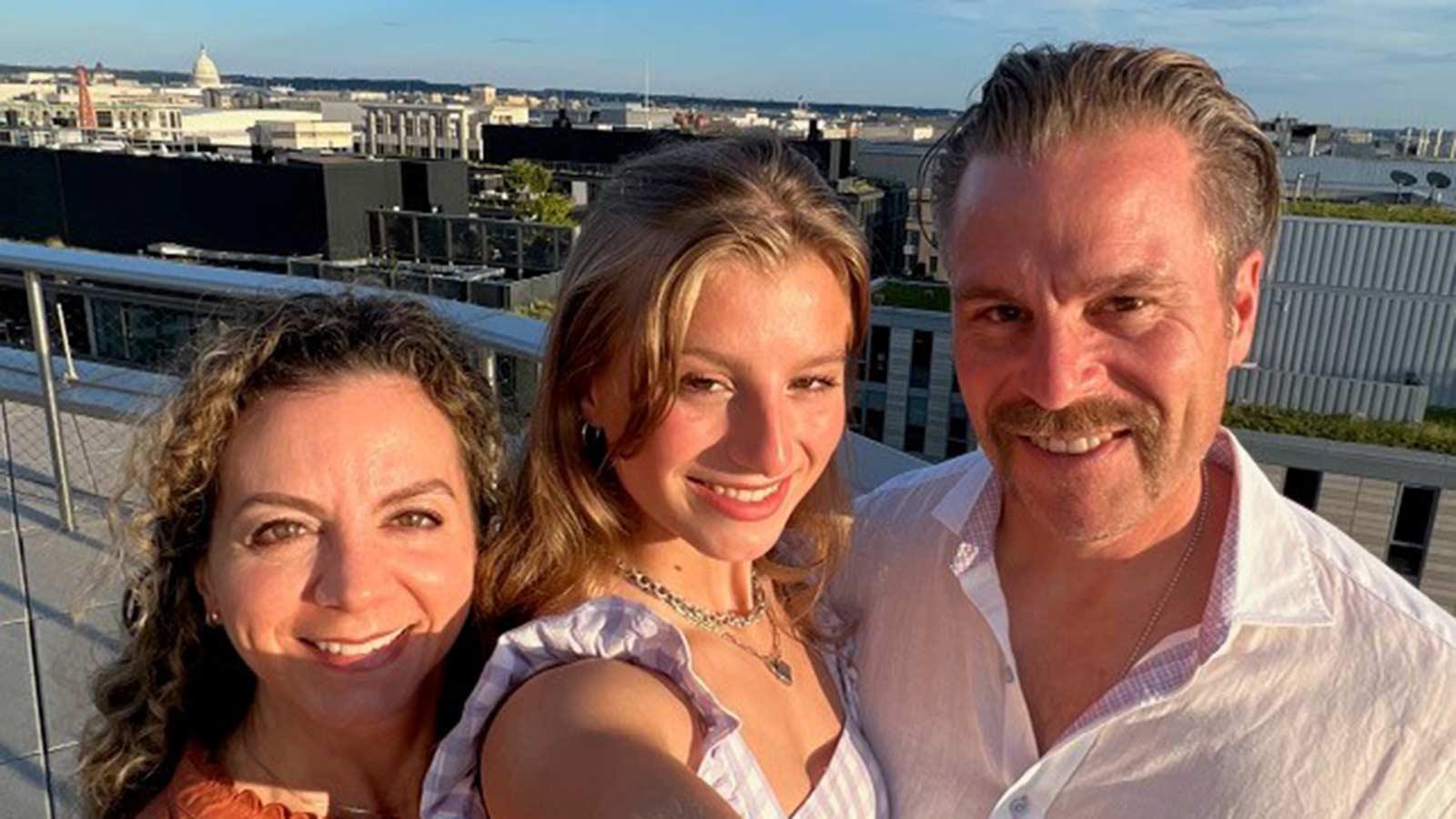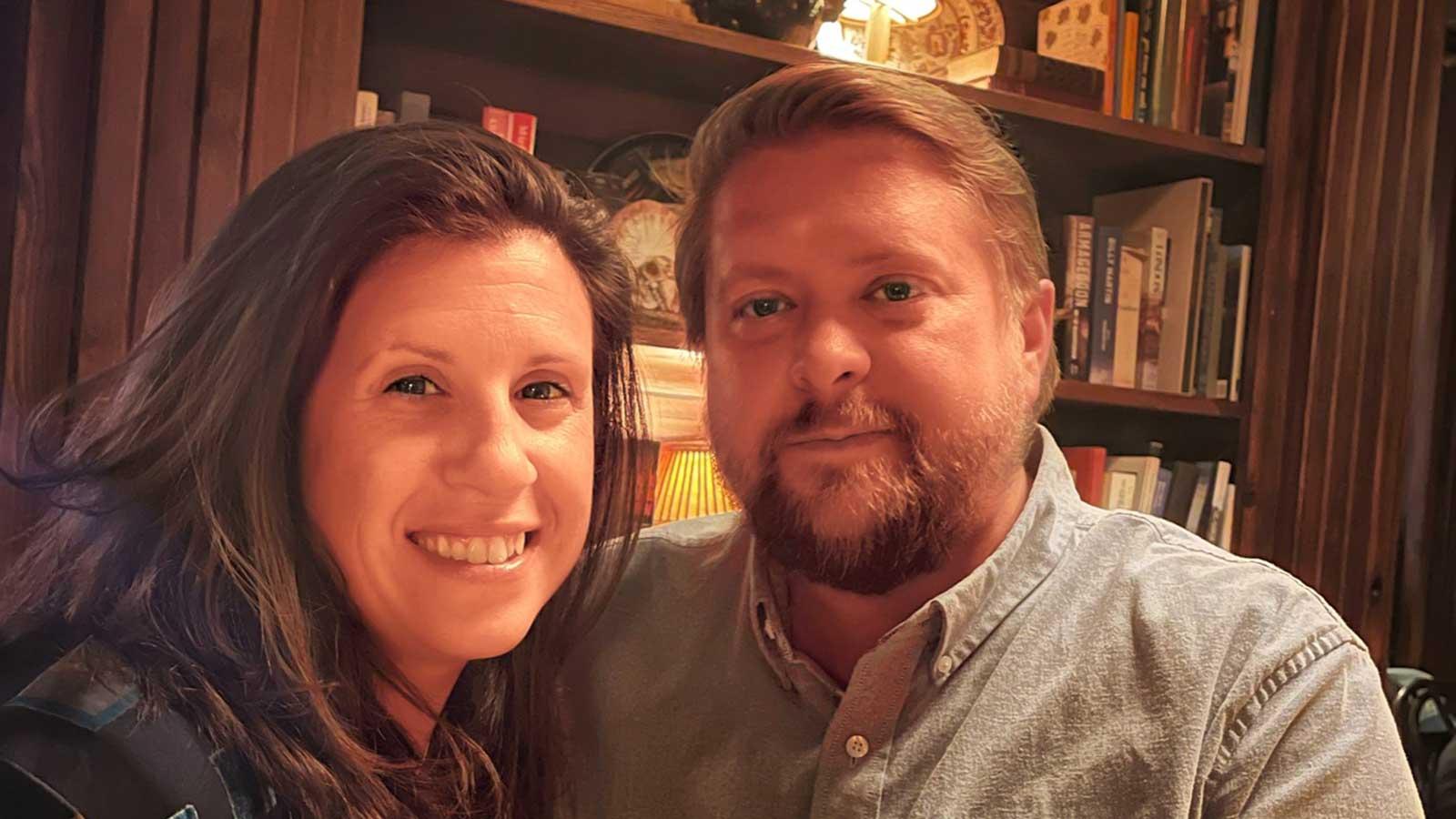
Elisabeth Haub School of Law at Pace University Welcomes Leading Environmental Scholars as Haub Visiting Scholars
The Elisabeth Haub School of Law at Pace University is proud to announce that a distinguished group of environmental law scholars will join the Law School as Haub Visiting Scholars.


The Elisabeth Haub School of Law at Pace University is proud to announce that a distinguished group of environmental law scholars will join the Law School as Haub Visiting Scholars. These renowned thought-leaders bring extensive expertise across climate change law, environmental justice, policy, and interdisciplinary law practice, and will enrich Pace Haub Law’s Environmental Law Program through guest lectures, collaboration with faculty, and direct engagement with students.
“Our Haub Visiting Scholars program offer students and faculty an opportunity to engage directly with leading voices in environmental law,” said Achinthi C. Vithanage, Executive Director of the Environmental Law Program and Professor of Law for Designated Service in Environmental Law. “Their scholarship, teaching, and mentorship enrich the classroom experience and advance innovative thinking across our program. We are fortunate that Randy, Marianne, Doug, and Jim are willing to give so much of their time to our Pace Haub Law community.” Funding for the Haub Visiting Scholars was made possible by a gift from the Haub family in recognition of the essential role of environmental science, informatics and other technology and allied fields towards formulating environmental policy and law.
Randall S. Abate will serve as a Haub Visting Scholar for the spring 2026 semester, bringing global expertise in climate change law and justice. Professor Abate is a Research Associate and Special Advisor for Law and Justice at Ocean Nexus and is a Visiting Scholar at the Environmental Law Institute. In spring 2026, he will also teach environmental, food, and animal law focused courses at one law school and two universities. Previously, he served as Assistant Dean for Environmental Law Studies at the George Washington University Law School and has held full-time law teaching positions at six U.S. law schools and one university. Professor Abate has lectured and taught courses in more than 25 countries on six continents and has published six books and more than 40 law journal articles and book chapters. He is the author of Climate Change and the Voiceless: Protecting Future Generations, Wildlife, and Natural Resources (2nd ed., forthcoming 2026). During his time at Pace Haub Law, Professor Abate will serve as a guest lecturer and a symposium panelist, deliver two book talks, convene with faculty and students, participate in the annual Pace-Maryland Colloquium, and serve as a judge in The Jeffrey G. Miller National Environmental Law Moot Court Competition (NELMCC).
As previously announced, Marianne Engelman-Lado, Douglas Kysar, and James Salzman will also serve as Haub Visiting Scholars during 2026.
During her time as a Haub Visiting Scholar, Marianne Engelman-Lado will deliver a faculty workshop, visit classes as a guest lecturer, and engage with the Pace Haub Law Community. Professor Engelman-Lado’s has devoted her career to civil rights and environmental justice. She recently joined New York University School of Law to serve as Research Scholar and Director of a new Environmental Justice Initiative. During the Biden Administration she served as Deputy General Counsel for Environmental Initiatives in the Office of General Counsel and as Acting Principal Deputy Assistant Administrator in the newly launched Office of Environmental Justice and External Civil Rights at the Environmental Protection Agency. She previously directed Environmental Justice Clinics at Yale and Vermont Law Schools, and served as Lecturer at both the Yale University School of Public Health and the Yale School of the Environment. She has served as senior staff attorney at Earthjustice, her experience also includes ten years as General Counsel at New York Lawyers for the Public Interest (NYLPI), and she began her legal career as a staff attorney at the NAACP Legal Defense and Educational Fund, Inc. Marianne has lectured widely and taught graduate, law and undergraduate level courses and is a widely published scholar.
Douglas Kysar will visit Pace Haub Law as a Haub Visiting Scholar over the course of the spring 2026 semester. Professor Douglas Kysar is Joseph M. Field ’55 Professor of Law at Yale Law School and faculty director of the Law, Environment and Animals Program. His teaching and research areas include torts, animal law, environmental law, climate change, products liability, and risk regulation. Professor Kysar was previously on the faculty at Cornell Law School. He has also served as a visiting professor at Indiana University, NYU, UCLA, Yale, Harvard, and in Singapore, Hong Kong, London, and Spain. Professor Kysar has authored several books and is a widely published scholar. During his time at Pace Haub Law, he will deliver the Lloyd K. Garrison Lecture on Environmental Law in April 2026. He will also serve as a guest lecturer, convene with faculty and students, and participate in the annual Pace-Maryland Colloquium.
James Salzman will visit Pace Haub Law as a Haub Visiting Scholar during the fall 2026 semester. Professor Salzman is the Donald Bren Distinguished Professor of Environmental Law with joint appointments at the UCLA School of Law and at the Bren School of Environmental Science & Management at UC Santa Barbara. During his time at Pace Haub Law, Professor Salzman will deliver the 2027 Lloyd K. Garrison Lecture on Environmental Law. Prior to his current appointment, he formerly held distinguished chairs at Duke University Law and Environment Schools. In thirteen books and more than 100 articles and book chapters, his broad-ranging scholarship has addressed topics spanning drinking water, policy design, and creating markets for ecosystem services. One of the most read environmental law professors in the world, his work has been translated into ten languages with over 115,000 article downloads. He frequently appears as a media commentator and has delivered lectures on every continent. He has served as a visiting law professor at Columbia, Harvard, Stanford, and Yale as well as at universities in Australia, China, Israel, Italy, Portugal, and Sweden.
Master’s in Computer Science vs. Software Engineering: Key Differences, Career Paths, and How to Choose
Compare a master’s in computer science vs. software engineering, from courses to careers, and choose the right graduate path.


Choosing between a master’s in Computer Science (CS) and a master’s in Software Engineering (SE) is a common crossroads for aspiring technologists. Both programs require proficiency in programming and math. Both can lead to rewarding roles across industries. But they are not the same degree, and the differences matter when you picture your day-to-day work.
This guide breaks down what each degree covers, where they overlap, how they differ, and the careers they lead to. We’ll also outline typical admissions requirements, course patterns, and timelines, with examples from respected programs, including Pace University, to help you compare options and choose the path that fits your goals.
What is a Master's Degree in Computer Science?
Computer scientists study the fundamentals of computer design, usage, and programming. Graduate study examines how computers function as a whole, encompassing both hardware and software, and how systems communicate through wired and wireless networks. Many master’s programs also involve theory and formal methods that inform the design and analysis of software and systems.
Degree Overview and Requirements
Most CS master’s programs expect prior coursework in discrete math, data structures, and at least one programming language. Some, like Pace University’s MS in Computer Science, offer a short bridge course for applicants without a computing background so career changers can ramp up before core classes begin. Typical application materials include a statement of purpose, a resume, and transcripts from all colleges attended. Letters of recommendation may be optional.
Duration of Program
A common plan of study runs 30–34 credits completed in about 24 months full time, with part-time options for working professionals. Many universities offer multiple start terms across the year and a choice of in-person or online study. International students often seek STEM-designated programs that support internships and practical training.
Coursework
Computer Science master’s curricula usually blend theoretical depth with hands-on projects, covering:
- Core foundations: Algorithms and complexity, data structures, operating systems, networking, and databases
- Modern computing topics: Distributed and cloud computing, internet and web computing, cybersecurity fundamentals
- Electives that build career focus: Artificial intelligence and machine learning, data science, mobile and web development
As artificial intelligence tools and systems have become embedded in everything from search engines to healthcare tools, many computer science master’s programs incorporate AI concepts into core curriculum rather than limiting them to a narrow specialization.
This shift is reflected in Pace's MS in Computer Science program, for example, drawing on more than 30 years of AI education at the Seidenberg School and faculty expertise spanning machine learning, natural language processing, robotics, and intelligent systems. With more than 40 courses across undergraduate and graduate study incorporating AI concepts, and more than 15 faculty members active in AI teaching and research, students encounter artificial intelligence as a recurring theme within broader computing foundations.
Benefits of the Degree
A CS master’s offers a broad technical range. Graduates can pivot among systems work, data-focused roles, and application development. Strong programs provide:
- Research exposure: Faculty-led labs where students co-author papers or present at conferences
- Portfolio-ready projects: Capstones and industry collaborations such as Pace’s NYC Design Factory, where students build real products with global partners
- AI research community: Access to centers such as the Pace Artificial Intelligence Lab, where students and faculty collaborate on applied projects in machine learning, natural language processing, and generative AI
- Hands-on AI experience: Opportunities like the Pace AI Internship Experience, a short-format, immersive program focused on building and testing AI models through guided, team-based projects
- Career support: Advising, interview prep, and employer connections. For example, Pace University reports that 93% of Seidenberg students are employed, in service, or continuing education within a year of graduation.
What is a Master's Degree in Software Engineering?
Software engineers specialize in writing code for computers and digital devices while applying engineering principles to design, test, and maintain software. The education centers on the software lifecycle from early planning through launch and maintenance. Professionals in this discipline may also be referred to as software developers, software designers, or computer programmers.
Degree Overview and Requirements
Strong SE programs expect prior programming experience and comfort with data structures and algorithms. Applicants typically submit a statement of purpose, a resume, and transcripts. Pace’s Software Development and Engineering MS illustrates a common model: coursework aligned to modern team practices and, uniquely, access to IEEE-aligned content as Pace is an IEEE Registered Education Provider in the eastern United States.
Duration of Program
Many SE master’s degrees span 30–36 credits and take about 24 months to complete full time, with flexible part-time pacing. Multiple start terms and in-person or online delivery are common. SE programs are frequently STEM-designated and support international students.
Coursework
Software Engineering graduate-level study emphasizes building and shipping reliable software in team settings. Coursework typically includes:
- Core areas: System and software design/architecture and development, software management and evolution, and management of human resources in software teams
- Concentrations: Programming languages, tools, and methods; internet software development; human-computer interaction; secure software development; software process management
- Tooling and practice: Requirements, testing strategies, Continuous Integration/Continuous Delivery (CI/CD), code reviews, observability, and release management
Benefits of the Degree
Graduates strengthen skills that help teams ship features on time and maintain quality in production. Programs that mirror Pace’s approach tend to offer:
- Project-heavy learning: App design, implementation, usability studies, and performance tuning
- Industry access: Guest speakers from regional employers and alumni networks
- Global collaboration: Opportunities such as the Design Factory Global Network experience, where students work with peers in Europe and beyond on sponsored projects
Computer Science Vs. Software Engineering: Similarities
Both degrees rest on a shared technical foundation. Graduates from either program can build software, analyze systems, and communicate with cross-functional teams. The overlaps below are the most common.
- Programming fluency: Exposure to languages such as Python, Java, and SQL, plus version control, testing, and collaboration tools
- Mathematics and engineering fundamentals: Discrete math, probability, statistics, and algorithmic analysis inform problem solving
- Career access: Graduates can pursue roles such as software developer, software engineer, data scientist, or computer systems analyst depending on electives, internships, and prior experience
Computer Science Vs. Software Engineering: Differences
The contrasts reflect how each discipline frames its core questions and daily work. Here’s how to think about the split while keeping inevitable overlap in mind.
- Scope: CS studies computing where hardware, software, and networks meet. SE operates almost entirely in software.
- Design focus: SE programs train students in product planning, UI/UX principles, and process design for teams. CS programs focus more on system architecture, algorithms, and the constraints that shape performance.
- Science vs. application: CS investigates the theories and methods that make computers work. SE applies those principles to produce reliable, maintainable software.
- Creation vs. integration: SE leans on building solutions from scratch with languages, frameworks, and pipelines. CS places heavier emphasis on how hardware, operating systems, networks, and software layers interact.
- Career breadth: CS often spans more fields, from IT and systems to data science and research. SE is more specialized around product delivery, secure development, and engineering leadership.
Computer Science vs. Software Engineering Fields
| Computer Science | Software Engineering | |
|---|---|---|
| Primary focus | How computing works across algorithms, systems, data, and networks | Planning, designing, building, testing, and shipping software products |
| Coursework | Algorithms, operating systems, databases, networking, AI / Machine Learning (ML) electives | Architecture, requirements, testing, secure coding, CI/CD, Human-computer Interaction (HCI), team process |
| Portfolio outcomes | Research prototypes, systems projects, data science work | Production-ready apps, design docs, test suites, pipelines, reliability metrics |
| Typical first roles | Software Developer, Data Scientist, Systems Analyst, Cloud Admin | Software Engineer/Developer, Full-Stack Developer, QA/Automation, DevOps |
| Mobility vs. specialization | Broader range across systems, data, and research | Tighter focus on product delivery and engineering leadership |
| Best fit | If you enjoy theory, systems thinking, and cross-domain options | If you enjoy building usable software and improving reliability with a team |
Career Paths for Master's in Computer Science Graduates
Computer science graduates can work across artificial and machine intelligence, networks, security monitoring, databases, user interaction, mathematical analysis, and programming language theory. Below are representative roles, the skills they require, and typical pay guidance modeled on ranges that schools like Pace share from major salary aggregators such as Glassdoor.
Master in Computer Science Careers
| Job Title + Description | Required Skills | Salary Range |
|---|---|---|
Data Scientist Analyze and interpret large datasets to produce insights and models that guide decisions | Python, statistics, machine learning, feature engineering, cloud platforms, visualization | $120,000–$195,000 |
Artificial Intelligence/Machine Learning Engineer Design and deploy ML systems for Natural Language Processing, computer vision, recommender systems, or forecasting | Python, deep learning frameworks, data engineering, MLOps, experimentation and evaluation | $109,000–$175,000 |
Cybersecurity Analyst Protect networks and systems through risk assessment, controls, monitoring, and incident response | Security frameworks, scripting, SIEM tools, networking, basic cloud security | $101,000–$170,000 |
Systems Architect Design high-level architectures that balance performance, reliability, security, and cost | System design, distributed systems, cloud services, integration patterns, stakeholder communication | $146,000–$231,000 |
Research Scientist Investigate advanced topics in computing such as algorithms, AI, HCI, or bioinformatics; publish findings and collaborate with academia or industry labs | Strong math and theory, experimental design, prototyping, academic writing | $165,000–$268,000 |
Note: Salary ranges reflect data sourced in August 2025 and can vary based on geographic location, specific job title, organization size, experience level, and various other factors.
Career Paths for Master's in Software Engineering Graduates
SE graduates concentrate on building, testing, releasing, and improving software in organizations of all sizes. The roles below show where the degree commonly leads.
Master in Software Engineering Careers
| Job Title + Description | Required Skills | Salary Range |
|---|---|---|
Software Development Manager Lead a team that plans, designs, and delivers software products | Project planning, hiring and coaching, architecture reviews, metrics, stakeholder alignment | $185,000–$293,000 |
DevOps Engineer Bridge development and operations through automation and reliability practices that keep delivery smooth | CI/CD tooling, scripting, cloud services, containers, observability, incident response | $112,000–$176,000 |
Product Manager (Software Focus) Translate market needs into roadmaps and requirements, work with designers and engineers, and measure outcomes | Market research, prioritization, technical fluency, analytics, communication | $167,000–$250,000 |
Quality Assurance (QA) Lead Own test strategy and automation frameworks that improve reliability and performance | Test architecture, automation tools, performance testing, defect management, leadership | $76,000–$132,000 |
Full-Stack Developer Build both front-end and back-end components with an eye for usability, reliability, and maintainability | JavaScript/TypeScript, modern UI frameworks, server frameworks, databases, testing, CI/CD | $91,000–$155,000 |
Note: Salary ranges reflect data sourced in August 2025 and can vary based on geographic location, specific job title, organization size, experience level, and various other factors.
Software Engineering Degree Vs. Computer Science Degree: How to Choose
The best choice depends on your interests, strengths, and where you want to grow. Use the questions and factors below to guide your decision.
- Do you want immediate, practical skills or a deeper “why?”
If you enjoy algorithms, systems, and the theory that explains how computing works, a CS master’s fits well. If your energy comes from delivering user-facing software and improving reliability, SE suits you. - Do you want broader long-term mobility or a product-centered path?
CS supports movement across AI, data, systems, and research. SE focuses on software delivery and leadership in product organizations.
Before you apply, review the points below. Each item has a direct influence on fit and success:
- Your academic interests and strengths: Scan sample syllabi. Which courses and project types sound exciting?
- Degree requirements: Note prerequisites and whether a bridge course is available if you are changing fields.
- Program structure and duration: Credits, pacing for full-time or part-time study, and available start terms.
- Paths to graduation: Capstones, faculty-led research, or sponsored projects such as Pace’s NYC Design Factory.
- Career goals: Target roles and the artifacts you want in your portfolio (papers, design docs, production apps).
- Starting positions and salary differences: Developer, data scientist, and cloud roles publish different ranges. Weigh interest and growth expectations rather than chasing a number.
- Which degree program leads to a higher entry-level salary? Pay depends on role and market. Data-focused roles often list higher ranges. Engineering roles provide visible growth ladders.
- Job market demands: Search postings in your city and note required skills and frameworks.
- Potential for career advancement: A graduate degree strengthens your base for senior engineering, architecture, or product leadership over time.
FAQs
Which is better, computer science or software engineering?
Neither is universally better. Choose based on the work you want to do. CS emphasizes breadth across theory, systems, and data. SE emphasizes designing and delivering reliable software in team settings.
Who gets paid more, computer science or software engineering?
Compensation depends on role, location, and experience. Data-oriented roles sometimes publish higher ranges. Engineering roles offer steady progression from engineer to senior, staff, and leadership. Pick the work you prefer, then build experience through projects and internships.
Is software engineering harder than a computer science degree?
Difficulty is personal. CS leans on math and theory alongside systems topics. SE leans on architecture, code quality, testing depth, and delivery under real constraints. Review sample syllabi and imagine the assignments you would enjoy.
Can I become a software engineer with a computer science degree?
Yes. Many software engineers hold CS degrees. Your electives, internships, and portfolio signal readiness for engineering roles.
Is there still demand for software engineers?
Yes. Organizations across every sector hire developers and engineers. A graduate degree coupled with internships and strong project work improves your positioning.
Ready to match your goals with the right program and see the coursework up close? Explore Pace’s Master of Science in Computer Science and Master of Science in Software Development and Engineering pages to compare curricula, and then connect with an advisor or request information to start planning your next step.
Press Release: Pace University to Host 12th Annual Broadway Stage Management Symposium at Sands College of Performing Arts
Pace University’s Sands College of Performing Arts will host the 12th annual Broadway Stage Management Symposium (BSMS) on Saturday, May 30–Sunday, May 31, 2026, from 10:00 a.m.–6:00 p.m., on its Lower Manhattan campus.


Conference will strengthen industry partnerships and enhance hands-on training for stage management students
Pace University’s Sands College of Performing Arts will host the 12th annual Broadway Stage Management Symposium (BSMS) on Saturday, May 30–Sunday, May 31, 2026, from 10:00 a.m.–6:00 p.m., on its Lower Manhattan campus.
The Symposium brings together Broadway professionals, educators, students, and emerging artists to explore the art and practice of stage management through panels and discussions. Created by stage managers for stage managers, the conference focuses on professional development and the exchange of industry expertise.
The Symposium will also offer live online participation and on-demand access to session recordings, expanding access for stage managers nationwide and internationally.
“Hosting the Broadway Stage Management Symposium reflects the core mission of the Sands College of Performing Arts—to connect rigorous academic training with the highest levels of professional practice,” said Jennifer Holmes, PhD, dean of the Sands College of Performing Arts. “This partnership gives our students meaningful access to Broadway leaders while positioning Pace as a national hub for professional training and artistic collaboration.”
In addition to educational sessions, the event will feature the BSMS Expo, showcasing theatrical technology and service providers, including Clear-Com, Stage Write, Prospero, and Virtual Callboard. Pace stage management students will work alongside industry professionals throughout the conference, gaining hands-on experience and supporting the broader stage management community.
“The Broadway Stage Management Symposium has always been about sharing the wisdom of Broadway’s great professionals with the next generation,” said Matthew Stern, founder of the Symposium and head of the stage management department at Sands College of Performing Arts. “Partnering with Pace University allows us to deepen that commitment to education while strengthening the professional community.”
Students, educators, and professionals can learn more and register.
About Pace University
Founded in 1906 and celebrating 120 years of preparing students for success in 2026, Pace University pairs real-life learning with strong academics to launch meaningful careers. With campuses in New York City and Westchester County, Pace serves 13,600 students across a range of bachelor, master, and doctoral programs through the College of Health Professions, Dyson College of Arts and Sciences, Elisabeth Haub School of Law, Lubin School of Business, Sands College of Performing Arts, School of Education, and Seidenberg School of Computer Science and Information Systems.
About Sands College of Performing Arts
Sands College of Performing Arts at Pace University is a cutting-edge performing arts school that nurtures artistic innovation and develops future leaders and changemakers in the profession. Renowned for its diverse range of highly-ranked programs, Sands College is committed to cultivating top-talent performers, designers, and production professionals. From Hollywood to Broadway, Sands College students and alumni have appeared in major film and television productions and theater performances such as & Juliet, A Beautiful Noise, A Strange Loop, Almost Famous, Hadestown, Hamilton, Kimberly Akimbo, MJ The Musical, Moulin Rouge, Ohio State Murders, Wicked, and the Radio City Christmas Spectacular. Recognized by Playbill as one of the 10 most represented colleges on Broadway, Sands College continues to inspire the next generation of artists both on stage and screen.
About Broadway Stage Management Symposium
Founded by Matthew Stern, whose Broadway credits include Wicked, Finding Neverland, The Little Mermaid, Phantom of the Opera, and more. Stern is a board member of the Stage Managers’ Association, USA, serves as the head of the stage management department at Sands College of Performing Arts, and is the author of the upcoming book, Leadership Lessons from Broadway Stage Managers.
Earning a Master's in Cybersecurity: 7 Benefits, Career Paths, and Salary Insights
Is a masters in cybersecurity worth it? See the benefits, career paths, salary signals, and how Pace’s on-campus or online MS can help you move forward.


Cyber risk is climbing worldwide, and the stakes are high: Global cybercrime costs are projected to reach $15.63 trillion by 2029. According to the World Economic Forum’s Global Cybersecurity Outlook 2025, 72 percent of business leaders surveyed say risk increased over the past year, with ransomware still a leading concern.
As demand grows, many teams lack the expertise to keep up. The same report finds that two in three organizations face moderate to critical skills gaps, and only 14 percent feel fully staffed, which creates room for qualified candidates to advance.
If you’re wondering, “Is a master’s in cybersecurity worth it?”, this guide explains what an MS in cybersecurity covers, how programs are structured, typical admissions requirements, benefits and salary signals, career paths, and whether a certification aligns with your career goals.
What is a Master's in Cybersecurity?
A master’s in cybersecurity focuses on identifying, preventing, and responding to attacks across systems, networks, applications, and cloud environments. Most programs run 30–36 credits and can be completed in about two years, full-time.
Throughout the program, you’ll build a mix of technical depth and risk-aware judgment across enterprise environments, including:
- Network security
- Cryptography
- Risk management
- IoT security
- Digital forensics
- Secure software development
In addition to coursework, applied training is central to many programs. At Pace University, for example, students gain hands-on experience in the Pace Cyber Range, a secure virtual training environment designed to simulate real-world cyber threats. The Cyber Range enables you to practice the full lifecycle of an attack, from reconnaissance to defense and recovery, using industry-standard tools in controlled, attack-and-defend scenarios.
Rather than being limited to only case studies, students operate in live simulations with virtual machines and guided challenges that increase in complexity. This type of immersive training is crucial to translate classroom concepts into practical skills that employees expect in network security, digital forensics, and incident response.
In many programs, you'll also have the option to choose a focus area aligned to your target role, with concentrations such as:
- Cyber operations, which emphasizes technical skills like penetration testing, digital forensics, and threat detection
- Cybersecurity leadership, which focuses on strategy, risk management, and leading cybersecurity programs
Master's in Cybersecurity Admissions Requirements
Cybersecurity admissions policies vary by institution, but most programs look for academic readiness, a solid technical foundation, and clear professional goals.
Typically, universities expect a bachelor’s degree from an accredited institution, preferably in computer science, engineering, mathematics, or a related field. Programs value preparation in programming, networking, operating systems, and mathematics; applicants who have gaps in these areas may need to complete bridge or prerequisite coursework.
Testing requirements also differ by school. Some programs require the GRE, while others offer waivers based on professional experience, strong GPAs, or prior graduate study. International applicants are usually asked to demonstrate English proficiency through exams such as TOEFL or IELTS.
Beyond academics and testing, most universities commonly request official transcripts from all colleges or universities attended, a résumé or CV highlighting technical and professional experience, and a statement of purpose that connects your goals to the program’s outcomes. Letters of recommendation are often required or encouraged. Additionally, some programs may also ask for coding or writing samples.
Timing is another factor. Many programs admit for fall and spring, and some offer summer starts. Domestic and international timelines often differ to allow for processing and relocation, so review dates early.
Format and location also matter. On-campus, online, and hybrid options can affect course pacing, scheduling, and, for international students, visa considerations. Check each program’s modality options to plan an application path that fits your situation.
Is a Master's Degree in Cybersecurity Worth it? 7 Benefits to Consider
Rising risk and a persistent skills gap are shaping hiring across security teams. A graduate degree can deepen your technical range, strengthen your leadership profile, and help you compete for roles that influence strategy. The points below reflect current employer signals from the World Economic Forum’s Global Cybersecurity Outlook 2025.
- Higher earning potential over time.
Graduate training can open pathways into architect, lead, and managerial tracks where security decisions shape business outcomes. - Faster career mobility.
As noted above, widespread skills gaps can create quicker paths for capable specialists. A master’s may strengthen your case for architect, lead analyst, or manager roles, depending on your experience, performance, and market conditions. - Stronger job security.
Most leaders say cyber risk rose in the past year, and ransomware remains a top organizational concern, so demand spans many different industries. A master’s can position you for high-demand functions such as incident response, identity management, and cloud security. Outcomes vary by market, but deeper skills give you more options if one sector slows. - Readiness for AI-driven threats.
A reported 66 percent of organizations expect AI to have the biggest impact on cybersecurity in the coming year, yet only 37 percent have a process to assess AI security before deployment. Training that covers AI risk and secure adoption stands out. - Preparation for real attack patterns.
Preparation for real attack patterns. Courses and capstones mirror live tactics such as social engineering and ransomware, then push you through detection, containment, and recovery. With 42 percent of organizations reporting a successful social engineering attack and 45 percent ranking ransomware as the top risk, that focus turns into day-one impact on the job. - Broader governance and strategy perspective.
Geopolitical tensions influence cyber strategy at nearly 60 percent of organizations, and third-party risk is a major challenge for large enterprises. Graduate coursework in policy, risk, and supply-chain security teach you to write enforceable policies, run risk assessments, and manage third-party/vendor risk. - Portfolio and applied experience.
Capstones, labs, and internship opportunities help you demonstrate skills to employers and build references, which enables you to showcase your skills outside of a classroom setting and how you'll have an impact on the job.
What Can You Do with a Master's in Cybersecurity?
A graduate degree can widen your options across hands-on, architectural, and leadership tracks. Titles vary by company and industry, so use the roles below to map day-to-day work, the skills that matter, and current New York City pay trends.
Chief Information Security Officer (CISO)
- Leads enterprise security strategy, risk posture, and reporting to executives and governing boards
- Key skills: Governance, risk, budgeting, executive communication
- NYC median salary: $445,161
Cybersecurity Analyst
- Monitors environments, triages alerts, and supports incident response
- Key skills: SIEM, threat analysis, scripting, incident response
- NYC median salary: $106,475
Threat Intelligence Analyst
- Tracks adversaries and tactics to inform detections and brief stakeholders
- Key skills: OSINT, malware basics, reporting
- NYC median salary: $90,170
IoT Security Specialist
- Secures connected and operational technology from design through monitoring
- Key skills: Embedded security, network segmentation, cryptography
- NYC median salary: $104,489
Information Security Auditor
- Tests controls and validates compliance against frameworks; reports findings and remediation
- Key skills: ISO 27001, NIST CSF, risk assessment
- NYC median salary: $81,394
Security Architect
- Designs secure reference architectures and guardrails across cloud and on-prem systems
- Key skills: Cloud security, identity, zero trust, threat modeling
- NYC median salary: $153,271
Incident Response Manager
- Coordinates technical and business response to breaches and drives readiness improvements
- Key skills: Forensics, crisis management, communication
- NYC median salary: $142,357
Forensic Computer Analyst
- Collects, preserves, and analyzes digital evidence for internal review, legal, or law-enforcement needs
- Key skills: Chain of custody, artifact analysis, forensic tooling
- NYC median salary: $79,343
Cloud Security Engineer
- Hardens cloud platforms and workloads; implements identity, logging, and encryption controls
- Key skills: AWS/Azure, IAM, encryption, logging
- NYC median salary: $108,980
Penetration Testing Analyst (Ethical Hacker)
- Simulates attacks to uncover exploitable flaws and reports fixes
- Key skills: Recon, exploit development, scripting, reporting
- NYC median salary: $102,683
Note: Salary figures reflect Salary.com NYC pages accessed September 2025. Some roles do not have an exact-matching NYC title on the site; in those cases the closest NYC title is used and labeled above.
Master's Degree Vs Professional Certification in Cybersecurity
Graduate study and professional certifications serve different purposes. A master’s in cybersecurity builds broad conceptual understanding, applied technical depth, and communication skills that help with higher-responsibility roles. Certifications validate targeted knowledge and are often used by employers to screen for baseline proficiency or specialization. The fact is, many cybersecurity practitioners use both over the course of a career.
What a master’s signals to employers:
- You can connect technical work to risk, policy, and business outcomes across multiple domains
- You have practiced research, lab work, and capstone projects that mirror real environments and team collaboration
What certifications signal to employers:
- You meet a recognized knowledge standard that helps clear screening for specific roles or contracts
- You bring focused expertise in an area such as governance (CISM), security leadership (CISSP), or offensive testing (CEH)
Popular certifications include:
- Certified Information Systems Security Professional (CISSP)
- Certified Information Security Manager (CISM)
- Certified Ethical Hacker (CEH)
| MS in Cybersecurity | Cybersecurity Certification | |
|---|---|---|
| Duration | Typically 30–36 credits; about 2 years full time | Weeks to months; preparation time varies |
| Cost | Typically $30k–$60k+ in tuition before aid; billed per credit | Exam fees usually cost $575–$1,199 depending on credential. For example:
Plus, optional prep / training costs ($0–$3,000+) and renewal fees |
| Skills | Technical execution, research, communication, leadership, governance | Technical proficiency in the tested domain |
| Expiration | Does not expire | Renewal cycles are common; continuing education often required |
| Focus Areas | Breadth across security domains plus depth in a specialization | Targeted body of knowledge in one domain or toolset |
| Learning Format | Faculty-led courses, labs, and a capstone or thesis | Self-study or course prep followed by a proctored exam |
| Career Impact | Supports progression into architect, lead, and management tracks; strengthens long-term mobility | Helps meet hiring filters or contract requirements; sharpens candidacy for specialized roles |
| Flexibility of Knowledge Transfer | High across industries and roles | Moderate to narrow, depending on the certification |
Note: Many certifications require annual maintenance fees and continuing-education credits to keep the credential active.
If you need fast validation for a specific role, a certification can help. If you are aiming for broader responsibility, leadership potential, or research and project experience, a master’s offers more scope. Many professionals complete a degree and then add certifications as their roles evolve.
Is Getting a Master's in Cybersecurity Worth It?
For many early-career professionals, the answer is yes. A master’s in cybersecurity can support higher earning potential over time, open doors to architect and leadership tracks, and provide steadier job prospects in a field where demand remains strong. The degree also travels well across cyber, information security, and national security work, since the core skills apply in multiple industries.
The academic experience builds more than tool familiarity. You develop technical depth in areas, such as network defense, secure software, cloud security, digital forensics, and risk management, alongside practice in communication and stakeholder alignment. That mix helps you qualify for roles that influence decisions, not just implement them.
Career changers benefit too. Structured coursework, labs, and a capstone can create a credible portfolio that shortens the distance from prior roles to security-focused positions. Pairing the degree with a targeted certification can further validate a specialty and increase competitive advantage as a job candidate.
Before you commit, weigh the fit for your goals and constraints. Use the questions below to check alignment.
- What roles are you targeting in the next three to five years, and do those postings prefer or require graduate study?
- How will you cover the cost and time commitment, and what is your plan for internships or applied projects during the program?
- Which skills do you need most right now: broad preparation for long-term mobility, or a narrow specialization that a certification could validate quickly?
- Do you prefer structured learning with faculty feedback or independent study with exam validation?
- Where do you want to work geographically, and how might format options (on campus or online) affect your timeline?
A master’s can raise your ceiling, expand your options, and support movement into roles with a broader scope. Outcomes still depend on experience, performance, internships, and market conditions. If the degree aligns with your target roles and you can invest the time and cost, it is a strong path. If you need immediate validation for a specific job requirement, a certification may be the faster first step, with graduate study added when you are ready.
FAQs
Is getting a master's degree in cybersecurity worth it?
Getting a master’s degree in cybersecurity is worth it if you’re aiming for specialized or leadership roles and want broader preparation in risk, governance, and hands-on defense. A degree also allows you to address any ongoing skills gaps to enhance your advancement opportunities in the cybersecurity field.
How much can I make with a master's in cybersecurity?
With a master’s in cybersecurity, compensation depends on role, industry, and location; analysts, architects, managers, and executives command different ranges, but in general, cybersecurity professionals can expect to earn anywhere from $79,000 to $400,000+ per year.
Can you get a job with a master's in cybersecurity?
With a master’s in cybersecurity, you can qualify for roles across finance, healthcare, government, consulting, and SaaS, where sustained threats keep hiring needs high.
Is a master’s in cybersecurity difficult?
A master's in cybersecurity is not designed to be difficult, but it is rigorous. Good master's degree programs will require intensive work in systems, networks, cryptography, and secure development, plus labs and projects that mirror workplace challenges.
Does a master’s in cybersecurity require coding?
A master’s in cybersecurity often requires some coding; many tracks include scripting or programming for automation, testing, and secure development, though requirements vary by program.
Take Your Next Step in Cybersecurity with Pace University
Not sure which path fits? Share your background and goals. A Pace advisor can discuss program options, timelines, and support services.
The Elisabeth Haub School of Law at Pace University Celebrates Richard L. Ottinger
The Elisabeth Haub School of Law at Pace University mourns the passing of Dean Emeritus Richard L. Ottinger: environmental pioneer, dedicated public servant, leading scholar, and beloved teacher whose influence shaped this Law School and helped define modern environmental law.


Dean Emeritus Richard L. Ottinger: 1929–2026
The Elisabeth Haub School of Law at Pace University mourns the passing of Dean Emeritus Richard L. Ottinger: environmental pioneer, dedicated public servant, leading scholar, and beloved teacher whose influence shaped this Law School and helped define modern environmental law.
Dick Ottinger’s professional life traced the arc of public purpose. He was a co-founder of the Peace Corps. A sixteen-year Member of Congress. A leader in landmark environmental legislation. Founder and Chair Emeritus of the Environmental and Energy Study Institute. Founder of the Pace Energy Project. Dean of Pace Law School. A Scholar, mentor, and advocate.
Dick’s life’s work measures far beyond impressive titles alone. His professional life is measured in part by the institutions he strengthened, the students he inspired, and the legal frameworks he helped construct, frameworks that continue to shape environmental policy in the United States and across the globe.
Foundations of a Life in Service
Born on January 27, 1929, in Westchester County, Dick was rooted in the community he would later represent in Congress and ultimately return to serve through education.
He earned a Bachelor of Arts in Government from Cornell University in 1950 and graduated from Harvard Law School in 1953. That same year, he joined the United States Air Force, serving during the Korean War, rising to the rank of Captain, and twice achieving distinction for his service.
After leaving active military service, he practiced law in New York City, first as an associate at Cleary, Gottlieb, Friendly & Hamilton and later as a partner at Kridel, Malone & Spear.
Notably, he also co-founded one of the most enduring institutions of American public service, the Peace Corps, serving as Director of Latin American Programs from 1961–1964. In those early years, he helped build the operational and philosophical foundation of an organization rooted in global cooperation and service.
Congress: Environmental Leadership Ahead of its Time
In 1964, Dick was elected to Congress, becoming the first Democrat to win his Westchester seat. He would go on to serve sixteen impactful years in the House of Representatives.
He entered Congress at a pivotal time in American history and quickly established himself as a reform-minded legislator. He played a leadership role in efforts to modernize and democratize Congressional rules and procedures, but it was environmental law where he left his most enduring marks.
Throughout his Congressional career, Dick was often cited as one of the earliest environmentalists in Congress and one of the best-known experts in energy conservation. He chaired the Subcommittee on Energy, Conservation and Power and was one of the principal authors of the Public Utility Regulatory Policies Act (PURPA), legislation that fundamentally reshaped utility regulation by opening markets to renewable energy and cogeneration. Here Dick played a central role in shaping national energy policy.
Throughout his Congressional career, Dick was often cited as one of the earliest environmentalists in Congress and one of the best-known experts in energy conservation.
Long before renewable energy and climate change became dominant policy conversations, Dick was advocating conservation, government-backed solar initiatives, and energy systems that accounted for environmental cost.
He founded the Environmental and Energy Study Conference, the largest bipartisan, bicameral caucus in Congress, to provide objective information on environmental and energy issues. That body later evolved into the Environmental and Energy Study Institute (EESI), which he would continue to guide as Founder and Chair Emeritus.
During his time in Congress, Dick did not merely participate in the development of environmental law, he helped define it.
Read more about his Congressional career in The New York Times.
Coming “Home” to Pace
In 1984, after sixteen years in Congress, Dick returned to Westchester and joined what was then known as Pace University School of Law.
It was here that Dick embarked on what would become one of the most consequential chapters of his career. As a professor he taught in the environmental law program from 1984-94, espousing his knowledge and passion on countless law students, bringing to the classroom not only scholarly expertise but firsthand experience in shaping national policy.
The Pace Energy Project: Transforming Environmental Law into Action
Shortly after joining Pace, Dick became co-director of the Center for Environmental Legal Studies and founded the Pace Energy Project, now known worldwide as the Pace Energy and Climate Center.
This was groundbreaking work, as in the late 1980s, climate change was not yet a central legal issue. Under his leadership, the Pace Energy Project was already advocating for the integration of renewable energy into state utility systems, promoting energy efficiency mandates, challenging conventional utility investment models, and reframing environmental harm as an economic externality rather than an unavoidable cost of progress.
The Project pushed for the replacement of outdated power plants and greater investment in clean energy—laying critical groundwork for the legal and policy frameworks that would later define modern climate advocacy.
Dick also pioneered Environmental Costs of Electricity (1990), recognized as the first U.S. study of energy environmental externalities. This research reshaped how regulators and courts understood the “true cost” of energy, integrating environmental harm into economic decision-making.
It was through the Pace Energy Project that the Law School became not merely a teaching institution, but a practical policy think tank, engaged in real-world reform, influencing regulatory proceedings, and training students to operate at the intersection of law, science, and governance.
It was Dick’s work here that helped bring national acclaim to the Law School’s environmental law program.
Leadership and Impact at Pace
In 1994, Dick became Acting Dean and later Dean of Pace Law School.
As Dean, his leadership was transformative. Some of his most notable accomplishments included:
- Establishing the Law School’s Board of Visitors
- Securing the development of a new classroom building
- Strengthening international programs
- Establishing and expanding the LLM program
- Establishing the Law School’s Annual Fundraising Dinner
- Instrumentally bringing the New York State Judicial Institute, the training center for all New York State judges, to the Law School campus
Most important to Dick was his relationship with his students. A 1999 graduating student, Alicia Menechino, published “A Tribute to Dean Richard L. Ottinger” law review article as Dick’s time as Dean came to a close. In the article, she described him as:
“a memorable Dean… acclaimed for his outreach to, and inclusion of students in all matters affecting the school.” He was further described as a “voice of reason,” someone who led with “compassion” and “integrity.” She noted that he was “an approachable Dean,” and someone who “wanted to ease our transition into law school”
Dick never lost sight of his students. He personally greeted entering students. He listened. He invited questions. He modeled accessibility in leadership. For Dick, it always came back to the students.
In Dick’s own words, “Students are what a university is all about. The greatest joy of teaching is to see our students grow and succeed. We so often learn more from them than they from us.” For thousands of students, he was not simply a former Congressman. He was Professor and Dean Ottinger.
In Dick’s own words, “Students are what a university is all about. The greatest joy of teaching is to see our students grow and succeed. We so often learn more from them than they from us.”
Ottinger Hall: More Than a Name
In 2013, the Law School’s classroom building, which he helped construct during his time as Dean, was officially dedicated as Richard L. Ottinger Hall.
Dick responded to the honor with humility and wit, noting:
“Such an honor usually is reserved for those who are deceased.”
During the dedication, he thanked faculty, staff, donors, students, and especially his family. He made clear the building was not about personal recognition — it was about a broader mission, stating that, “No one builds a building by oneself, or a law school either for that matter.”
During his remarks, he also invoked Opportunitas, Pace University’s founding motto, as central to the Law School’s mission, noting that when the Law School was created it was meant to be student-oriented, and providing an opportunity for a legal education to students and faculty of all backgrounds, income classes, and beyond. And, importantly, a school where justice and access to the law for all was imparted among students. For Dick, ensuring that the Law School remained true to this mission was paramount.
It was during these remarks that Dick noted how he appreciated serving with what he described as “like-minded faculty.” In his own words, he often described his time at Pace as a “privilege.” He felt inspired by his colleagues in furthering environmental protection and justice and most importantly, inspired to “help educate the next generation of lawyers to be the leaders in advancing the cause of justice in our community, our country and the world.” For Dick, that was what it meant to have his name on Ottinger Hall.
Today, Ottinger Hall stands as a visible reminder of a life devoted to justice, public service, and education.
Dick was widely considered one of the most influential people in the field of environmental law. Environmental law today, in its integration of sustainability principles, renewable energy frameworks, environmental cost accounting, international cooperation, and more, bears the imprint of his vision.
Scholar, International Leader, and Architect of Modern Environmental Law
Dick’s scholarship throughout his life further expanded his impact. He authored or co-authored more than 100 articles and numerous books on environmental law, renewable energy, sustainability, and climate governance. His work influenced domestic regulatory policy and international legal frameworks alike. He was also the recipient of many prestigious honors and awards, and a dedicated member of countless organizations where he imparted his wisdom and made an impact.
Dick’s influence extended deeply into the international arena. He was invited to lecture at the International Renewable Energy Agency (IRENA), the only U.S. professor ever so invited. He also attended several IRENA Assemblies in Abu Dhabi. He led the renewable energy studies of the Commission on Environmental Law of the International Union for the Conservation of Nature (IUCN) and represented Pace at numerous IUCN World Conservation Congresses around the world.
His IUCN book on renewable energy law, edited with Professor Adrian Bradbrook of Australia, was launched at the United Nations Framework Convention on Climate Change in Bonn, a fitting testament to the global relevance of his work. He was also a founder of the Consortium for Ecological Law, which supports students at Pace Haub Law in their participation in IUCN activities, further extending his commitment to ensuring that our students engaged meaningfully in global environmental governance.
Dick was widely considered one of the most influential people in the field of environmental law. Environmental law today, in its integration of sustainability principles, renewable energy frameworks, environmental cost accounting, international cooperation, and more, bears the imprint of his vision.
You can find more information on Dick’s tremendous body of scholarship, achievements, honors, memberships, and more below.
A Legacy That Will Endure
Richard L. Ottinger’s professional life’s work reshaped environmental policy in Congress. It strengthened international legal frameworks. It institutionalized renewable energy law. It created the Pace Energy and Climate Center. It built one of the nation’s top environmental law programs. It influenced generations of lawyers.
He leaves behind his beloved wife June, four children, and ten grandchildren, and a community profoundly shaped by his presence.
Dick’s legacy will endure – through the students he taught, the policies he shaped, and the values he embodied. And through the law itself.
Richard L. Ottinger Career Highlights
-
- Member, U.S. House of Representatives (1965–1969; 1975–1985)
- First Democrat elected to Congress from Westchester County
- Chair, Subcommittee on Energy, Conservation and Power (1981–1985)
- Member, House Committee on Energy and Commerce
- Member, House Committee on Science and Technology
- Founder, Environmental and Energy Study Conference (largest bipartisan, bicameral caucus in Congress)
- Principal Author, Public Utility Regulatory Policies Act (PURPA)
- Author, Hudson River Compact Act (first-term bill passed in his own name)
- Early opponent of the Vietnam War; introduced Vietnam Disengagement Act (1969)
- Co-founder, Peace Corps (1961)
- Director, Latin American Programs, Peace Corps (1961–1964)
- U.S. Air Force, Captain, Korean War veteran (twice cited for distinguished service)
-
- Dean, Pace University School of Law (1994–1999)
- Professor of Law (Environmental Law)
- Co-Director, Center for Environmental Legal Studies
- Founder, Director, & Chair Emeritus, Pace Energy & Climate Center (est. 1987 as Pace Energy Project)
- Instrumental in bringing the New York State Judicial Institute to campus
- Established and Expanded LLM Program
- Richard L. Ottinger Hall dedicated in his honor (2013)
-
- Founder & Chair Emeritus, Environmental and Energy Study Institute (EESI)
- Founding Board Member, Friends of the Earth
- Chair (20 years), IUCN World Commission on Environmental Law – Energy & Climate Specialists Group
-
- ABA Section of Environment, Energy and Resources Award for Distinguished Achievement in Environmental Law and Policy
- American Bar Association Lifetime Achievement Award
- National Wildlife Federation “Legislator of the Year”
- Honorary Member, American College of Environmental Lawyers
- Over 20 awards from environmental and public policy organizations
- Honoree, Federated Conservationists of Westchester County
- Honorary Doctor of Law degrees:
- College of New Rochelle
- Mercy College
- Richard Ottinger Hall dedicated in his honor (Pace Law School, 2013)
-
- Board of Directors, National Counsel for Science and the Environment (2010-2016)
- Board of Directors, A founder, former Chair and current Chair Emeritus (1997-2026), Environmental Energy Study Institute, Washington, DC
- Chair, Board of Directors, LEAF (Legal Environmental Assistance Foundation ( 2000- 2026)
- Former Member of the Board of Directors of the American Council for an Energy-Efficient Economy (ACEEE)
- Founding Board member of Friends of the Earth
- Bedford 2030 Board Member (1916-1920); Advisory Board Member (2020 to date)
-
Books (authored and co-authored)
- A Tale of Two Cities: A Comparison of Air Pollution Governance in the Los Angeles Area of the USA and the Beijing-Tianjin-Hebei Area of China, Energy and Environmental Law and Policy Series, Kluwer Law International B.V., 2023.
- UNEP Guide to Energy Efficiency and Renewable Energy Laws, United Nations Environment Programme (UNEP), 2016.
- Energy Law and Development: Case Study Analyses, Edward Elgar Publishing, UK, 2013.
- Handbook for Drafting Laws on Energy Efficiency and Renewable Energy Resources, UNEP, 2007.
- The Law of Energy for Sustainable Development, Cambridge University Press, 2005.
- Compendium of Laws on Energy for Sustainable Development, Cambridge University Press, 2005.
- Energy Law and Sustainable Development, IUCN, May 2003.
- Social Costs and Sustainable Mobility, Springer Verlag, 2000.
- Social Costs and Sustainability, Northwestern School of Law of Lewis & Clark College; Springer Verlag, 1996.
- Social Costs of Energy, Springer Verlag, 1992.
- External Environmental Costs of Electric Power, Springer Verlag, 1991.
- Environmental Costs of Electricity, Pace University Center for Environmental Legal Studies; Oceana Publications, September 1990.
(First U.S. study of energy environmental externalities.) - Citizens’ Action — Vital Force for Change, Center for a Voluntary Society, 1971
- Copartnership in Business, Harvard Law School, 1953.
Book Chapters (authored and coauthored)
- Options for Adaptation to Climate Change, in Adaptation to Climate Change, ASEAN and Comparative Experiences, World Scientific Publishers, 2015
- Assessing Environmental Governance of the Hudson River Valley: Application of an IPPEP Model, in Implementing Environmental Law, Edward Elgar Publishing, 2015
- Legal Frameworks for Emerging Technologies: Bioenergy, in The Future of Environmental Law, UN University Press, 2011
- Copenhagen Climate Conference — Success or Failure?, in From Silos to Systems: Issues in Clean Energy and Climate Change, Yale School of Forestry & Environmental Studies, 2010
- Biofuels Potential, Problems & Solutions, in Bio Fuels, Merging Legal Horizons, Amicus Books / ICRAI University Press, 2009–2010
- Renewable Energy, in Beyond the Carbon Economy, Oxford University Press, 2008
Selected Scholarship, Articles, and Speaking Engagements
(Representative sampling of significant and recent works — Ottinger authored over 100 articles.)
- Moving to Clean Energy — Will It Take a War?, Bloomberg Law: Energy and Environment, October 7, 2022.
- Supreme Follies, New York Law Journal, October 4, 2022.
- Plastics as a Serious Climate Threat, presented at the IUCN Academy of Environmental Law Colloquium in Brisbane, Australia, July 13, 2022; selected for publication.
- Moving to Clean Energy — Will It Take a War?, Bloomberg Law, April 15, 2022.
- A New Approach to Climate Change: As Business Risk Insurance, The Hill, December 16, 2016.
- Expanding COP21 INDCs to Include Non-National Contributions, in Proceedings of the European Environmental Law Association Conference (October 2–3, 2015).
- Energy-Efficiency, Strategic Planning for Energy and the Environment, Vol. 30, Issue 2 (September 2010); also published in Natural Resources & Environment, ABA Section of Environment, Energy & Resources, Vol. 19, No. 3 (Winter 2005).
- Introduction: Copenhagen Climate Change Conference — Success or Failure, Pace Environmental Law Review, Vol. 27, Issue 2 (Spring 2010).
- Energy and Environmental Challenges for Developed and Developing Countries, Natural Resources Forum (U.N. Dept. of Technical Cooperation for Development), February 1993.
- Social Costs of Energy Use — Major Issues, Congress of the U.S. Office of Technology Assessment Worksheet on Social Costs of Energy Use, December 16, 1992.
- Incorporating Externalities — The Wave of the Future, New Energy Industrial Symposium (Tokyo, Japan), October 21–22, 1992.
- Pollution Taxes — The Preferred Means of Incorporating Environmental Externalities, 2nd Int’l Conf. on External Costs of Electric Power (Racine, WI), September 8–11, 1992.
- Exporting a Solar Model to Other States, American Solar Energy Society — Solar ’92 Conference, June 15, 1992.
- Incorporating Environmental Externalities Through Pollution Taxes, World Clean Energy Conference (Geneva, Switzerland), November 1991.
- Energy and Environmental Challenges for Developed and Developing Countries, Keynote Address, United Nations Meeting on Energy and Environment in the Development Process (Beijing, China), June 1991.
- Incorporating the Cost of Protecting the Environment Into Decisions About Electric Power, Perspectives in Energy, 1991.
- The Use of Law to Incorporate the Cost of Protecting the Environment into the Pricing of Electricity, Report of the Advanced Seminar on Economic and Legal Aspects of Pollution Abatement (Moscow, USSR), September 17–23, 1990.
Love @HaubLaw
In a 1L class, outside of the library, in the halls of Dannat, in student organizations, or through mutual law school friends – these alumni hit it off during their time at Pace Haub Law and the rest is history.


Alumni Love Stories
In a 1L class, outside of the library, in the halls of Dannat, in student organizations, or through mutual law school friends – these alumni hit it off during their time at Pace Haub Law and the rest is history. We asked them to briefly tell us their Haub Law love stories here. If you want to share how you found Love at Pace Haub Law please email Jessica Dubuss, Executive Director of Communications, at jdubuss2@law.pace.edu.
Gabriella Mickel '23, '24 and Daniel Guarracino '23

Gabriella Mickel ’23, ‘24 and Daniel Guarracino ’23 had many overlapping coincidences during their 1L year at the Elisabeth Haub School of Law at Pace University – they both decided to live in Dannat Hall, and they were also placed in the same section and Legal Writing class. “We very naturally spent a lot of time together right away and it progressed from there,” shared Gabriella. “We were married shortly after graduating from the Law School with many Pace Haub Law alumni and even professors in attendance; one alumni friend even helped officiate!"
Gabriella went on to not only obtain her JD from Pace Haub Law, but also her LLM. Today, Gabriella is a Teaching Professor at Wayne Law in Detroit, teaching legal writing and environmental law. Daniel is an attorney at the law office of Norman Abood where he focuses mostly on civil litigation. “We are both so grateful for our time at the Law School,” said Gabriella. “Not only did we both gain a law degree, but we were lucky enough to find each other.”
Brent Keith ‘09 and Erin Flannery Keith ‘09

Brent Keith ’09 and Erin Flannery Keith ‘09 were environmental law friends at Haub Law, but didn’t become a couple until reconnecting through work travel two years after graduation. They live in the northwest corner of Connecticut where Erin is an Assistant Regional Counsel at the U.S. Environmental Protection Agency Region 1 and Brent directs the land policy team for the Nature Conservancy in North America. They have been married for 13 years and their second grader loves ecology, chemistry, and rules.
Michael J. Konicoff ’13 and Hon. Taylor A. Piscionere ’13

Michael J. Konicoff ’13 and Hon. Taylor A. Piscionere ’13 met during their first year of law school as members of the same section. Several years later, Michael proposed on the Haub Law campus, just outside the library where their story first began. The couple recently celebrated their 10-year wedding anniversary. Michael is a partner at Piscionere & Nemarow, P.C., a litigation firm in Rye Brook, while Taylor serves as a judge in Rye City Court. They are the proud parents of two children, Jordan (7) and Charlie (5), who are their greatest joy.
I Study Moral Panics. The Epstein Files Are Not One.
Dyson Professor Marcella Szablewicz pens an op-ed for MS NOW applying moral panic theory to the public reaction surrounding the Epstein files. She argues that moral panics historically target marginalized “folk devils” and hinge on exaggerated threats—conditions that do not apply to scrutiny of powerful elites.
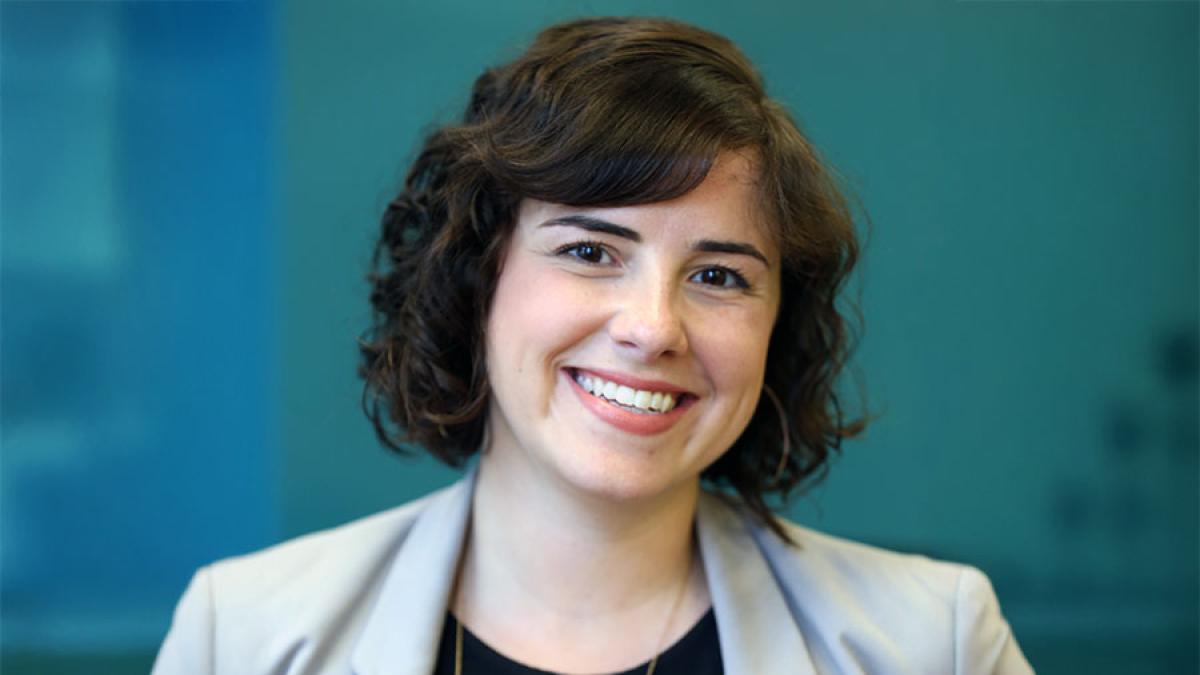
Adelphi University Accused A Student Of Using AI To Plagiarize. He Fought Back — And Won.
In Newsday, Dyson Philosophy Professor James Brusseau, who researches AI in higher education, weighs in on a closely watched case involving an Adelphi University student who successfully challenged an AI-related plagiarism accusation. Professor Brusseau underscores the broader implications for academic integrity policies, highlighting the need for transparent standards and due process as institutions grapple with artificial intelligence in student work.
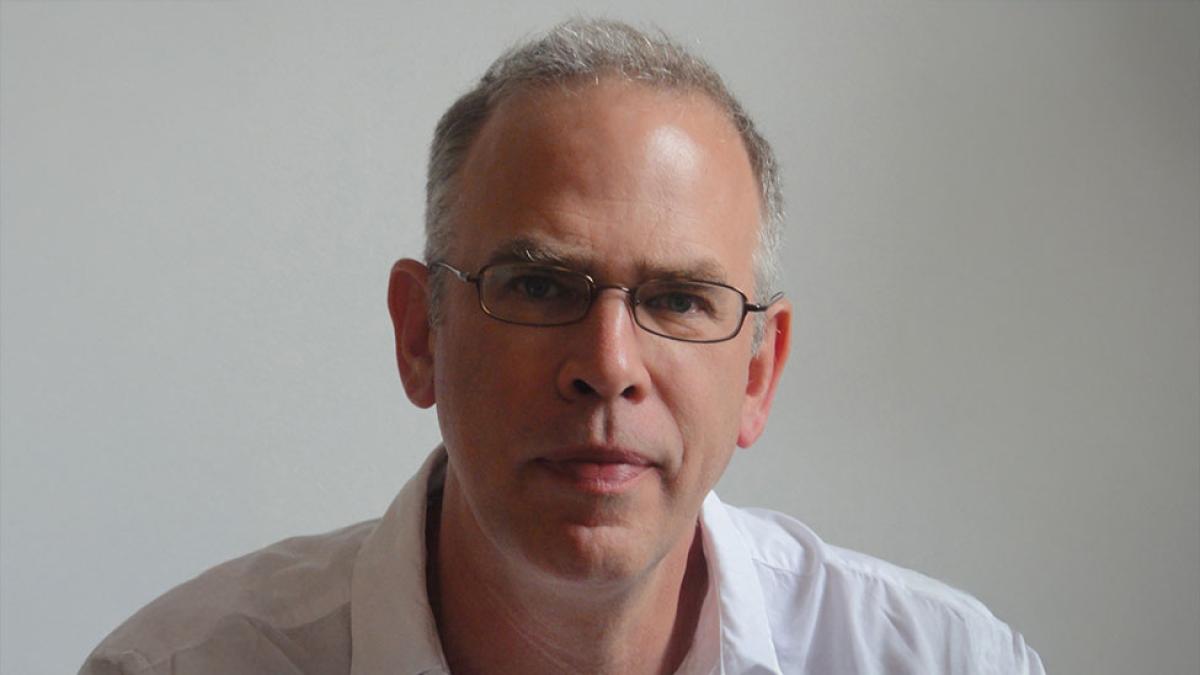
Art Explores 'Nuclear Injustice'
Pace’s commitment to peace and justice education received international attention as the “Nuclear Injustice” exhibit—co-curated by Chair of Peace and Justice Studies Emily Welty, Art Gallery Director Sarah Cunningham, and student curator Joel Wilson—was featured on NHK World-Japan. The segment highlighted student work and faculty commentary, underscoring Pace’s leadership in disarmament and human rights education.
Protests in Korea, US
Dyson Professor Seong Jae Min writes a piece in The Korea Times comparing recent pro-democracy protests in South Korea with demonstrations in the United States over immigration enforcement. He examines how polarization, geography, and social cohesion influence the scale and impact of civic mobilization, emphasizing that democratic systems endure only when citizens step forward to defend them.
